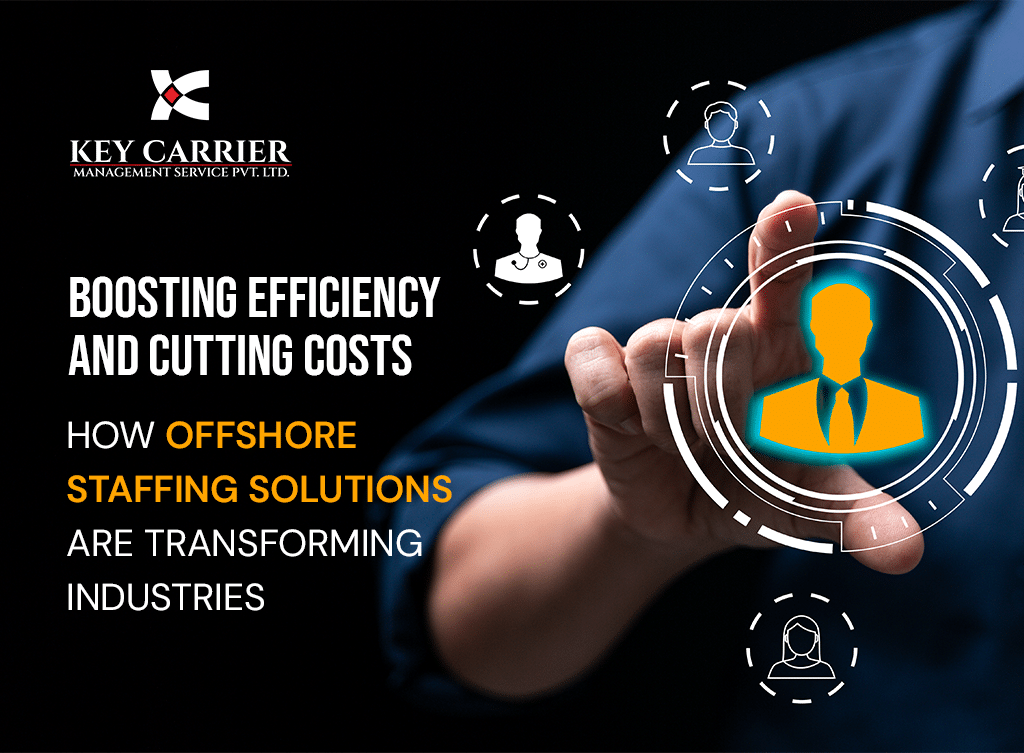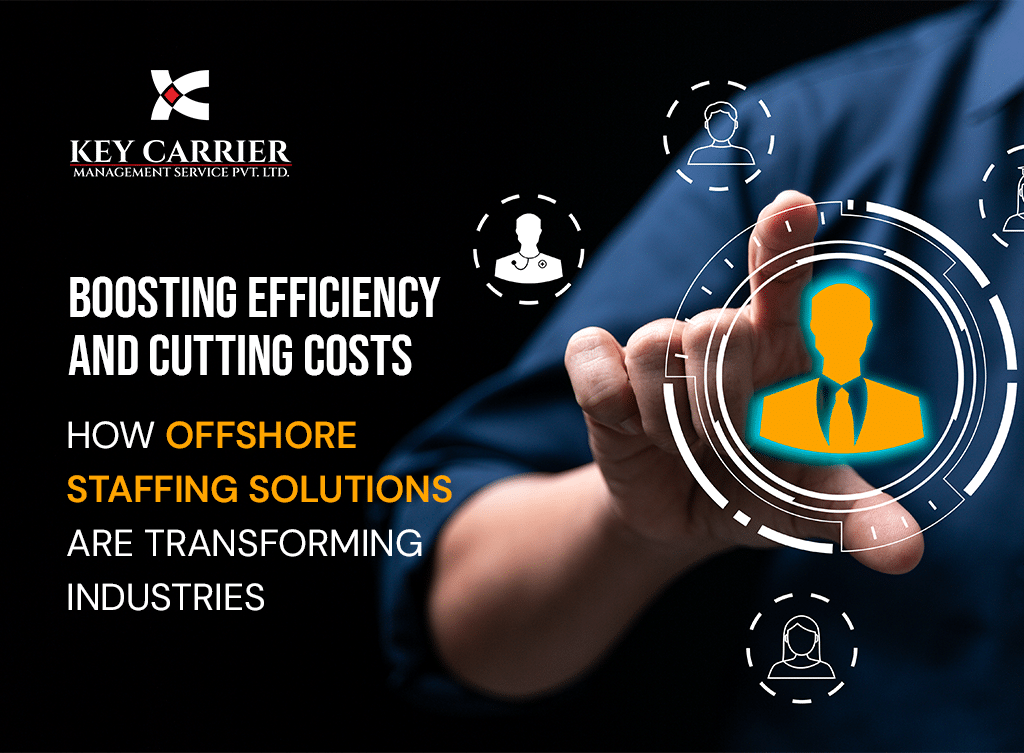
 Introduction
Introduction
Offshore staffing has become a growing trend in various industries, providing companies with the opportunity to boost efficiency and cut costs. We will dive deep into different models of offshore staffing, analyze industry growth and projections, and discuss key considerations when implementing offshore staffing. Furthermore, we will explore how offshore staffing enhances operational efficiency, drives cost-cutting benefits, and address frequently asked questions. Through this comprehensive guide, you will gain insights on how offshore staffing solutions are transforming industries.
1 The Growing Trend of Offshore Staffing
Offshore staffing has gained significant popularity in recent years. Companies across various industries have realized the potential of leveraging resources from diverse geographical locations. This trend has led to the exploration of offshore staffing solutions as a means to enhance operational efficiency and cut costs.
- Exploring the Rise in Offshore Staffing Solutions
Offshore staffing solutions have witnessed a remarkable rise due to globalization, advancements in technology, and the increasing need for cost optimization. As companies strive for global outreach, they are turning to offshore staffing to tap into a wider talent pool and reduce operational expenses. - Factors Driving the Adoption of Offshore Staffing
Several factors are behind the growing adoption of offshore staffing solutions. Firstly, companies are recognizing the benefits of accessing highly skilled professionals from different parts of the world. Additionally, the cost advantages offered by offshore staffing, along with the availability of advanced communication tools, have accelerated its adoption. - Benefits and Challenges of Offshore Staffing
Offshore staffing solutions offer numerous benefits such as cost savings, access to specialized talent, and the ability to scale operations quickly. However, there are also challenges to consider, including potential language and cultural barriers, data security concerns, and quality control. By addressing these challenges proactively, companies can harness the advantages of offshore staffing while mitigating risks.
2 Understanding Offshore Staffing Solutions
To fully comprehend the impact of offshore staffing solutions, it is crucial to understand its key components and different models of implementation.
- What are Offshore Staffing Solutions?
Offshore staffing solutions refer to the practice of hiring talent from overseas locations to perform specific tasks or projects for a company. This talent can be associated with various models, such as outsourcing, remote teams, or captive centers. - Defining Offshore Staffing and its Key Components
Offshore staffing involves the engagement of professionals located in different countries to deliver specialized services or support business processes. This approach allows companies to tap into a global talent pool and benefit from cost advantages while maintaining control over the tasks being outsourced. - Different Models of Offshore Staffing (Outsourcing, Remote Teams, etc.)
Companies can adopt different models of offshore staffing based on their requirements. Outsourcing involves collaborating with a third-party service provider to handle specific functions. Remote teams consist of professionals working remotely but directly for the company. A hybrid approach might also be beneficial, combining elements of both outsourcing and remote teams to achieve optimal outcomes. - Evaluating the Scope and Flexibility of Offshore Staffing Solutions
Offshore staffing solutions offer a wide scope and flexibility to businesses. Companies have the freedom to engage professionals for short-term projects or long-term collaborations. This flexibility allows organizations to adapt quickly to changing market demands without the need for substantial investments.
3 Offshore Staffing Industry Trends
The offshore staffing industry is experiencing significant growth and undergoing notable transformations.
- Analysis of Industry Growth and Projections
According to industry reports, the offshore staffing market is projected to reach unprecedented heights in the coming years. Factors such as cost optimization, globalization, and digital advancements are contributing to this growth. - Popular Industries Utilizing Offshore Staffing Solutions
Offshore staffing is being embraced by a wide range of industries, including IT and software development, customer service, finance and accounting, healthcare, and e-commerce. These industries benefit from the global talent pool, expertise, and cost advantages that offshore staffing provides. - Geographical Concentration of Offshore Staffing Hubs
Certain regions have emerged as major offshore staffing hubs due to their skilled workforce, language proficiency, and cost advantages. Examples include India, the Philippines, Eastern Europe, and Latin America. Companies often choose these locations based on their specific requirements and expertise availability. - Factors to Consider when Implementing Offshore Staffing
When implementing offshore staffing, it is essential to consider several factors to ensure successful outcomes. - Identifying Key Business Processes for Offshore Staffing
Organizations should identify the business processes that can be effectively outsourced, considering factors like complexity, confidentiality, and the need for specialized skills. This evaluation will help determine the tasks suitable for offshore staffing. - Assessing Cost and Savings Potential
A comprehensive cost analysis should be conducted to compare the expenses associated with offshore staffing versus local staffing. Companies should assess various cost components, including salaries, overheads, and infrastructure requirements, to determine potential savings. - Legal and Regulatory Considerations in Offshore Staffing
Offshore staffing often involves working with professionals from different countries. Companies must stay informed about legal and regulatory requirements, such as data protection laws and intellectual property rights, to ensure compliance and avoid legal complications.
4 Driving Efficiency with Offshore Staffing
Implementing offshore staffing solutions can significantly enhance operational efficiency for organizations.
- Enhancing Operational Efficiency through Offshore Staffing
One of the primary benefits of offshore staffing is the improved utilization of resources and scalability. By tapping into a global talent pool, companies can access specialized skills and expertise that may not be readily available locally. - Leverage Time Zone Differences for 24/7 Operations
Offshore staffing solutions allow companies to establish round-the-clock operations by taking advantage of time zone differences. This leads to increased productivity, faster turnaround times, and enhanced customer service. - Optimizing Workflows and Streamlining Processes
Offshore staffing provides an opportunity to reevaluate workflows and streamline processes. By involving offshore staff in process optimization initiatives, organizations can drive efficiency and identify areas for improvement. - Harnessing Technological Advancements in Offshore Staffing
Technological advancements play a crucial role in maximizing the benefits of offshore staffing solutions. - Utilizing Collaborative Tools and Communication Platforms
Collaborative tools and communication platforms enable seamless coordination and efficient collaboration between onshore and offshore teams. These tools facilitate real-time communication, file sharing, and project management, ensuring smooth operations. - Automation and Artificial Intelligence in Offshore Staffing
Automation and artificial intelligence (AI) can be integrated into offshore staffing processes to further enhance efficiency. AI-powered tools can automate repetitive tasks, reduce errors, and optimize resource allocation. - Integrating Offshore and Onshore Teams for Seamless Operations
Successful integration of offshore and onshore teams is essential for seamless operations. - Developing Agile Team Structures with Offshore Staffing
Agile project management methodologies can be adopted to create flexible team structures involving both onshore and offshore staff. This approach fosters collaboration, adaptability, and continuous improvement. - Cross-functional and Multidisciplinary Offshore Teams
Forming cross-functional and multidisciplinary offshore teams can lead to increased productivity and innovative problem-solving. The diverse skill sets brought by offshore team members enrich the overall project execution. - Effective Communication Strategies for Distributed Teams
Ensuring effective communication within distributed teams is crucial for successful offshore staffing. - Implementing Clear Communication Channels
Establishing clear communication channels and protocols helps overcome potential language and cultural barriers. Regular team meetings, video conferences, and instant messaging platforms promote smooth communication and foster trust among team members.
5 Cost Cutting Benefits of Offshore Staffing
Cost-cutting is a significant advantage of offshore staffing solutions, as businesses can save substantially compared to local staffing alternatives.
- Analyzing the Cost Saving Potential of Offshore Staffing
Offshore staffing enables companies to achieve significant cost savings in multiple areas. - Comparing Salary and Operational Costs with Local Staffing
When comparing salaries and operational costs between offshore staff and local employees, companies often find substantial differences. Offshore staffing can offer cost savings of up to 70% in certain industries and regions. - Scalability and Cost Management in Offshore Staffing
Offshore staffing provides scalability to meet changing business needs. Companies can easily scale their operations up or down without significant investments in infrastructure or employee benefits. - Calculating Return on Investment (ROI) for Offshore Staffing
Calculating the return on investment (ROI) for offshore staffing involves considering cost savings, enhanced productivity, and revenue growth. This evaluation helps companies assess the financial impact of implementing offshore staffing solutions. - Mitigating Risks and Addressing Cost Concerns
While offshore staffing offers cost advantages, there are potential risks and cost concerns that organizations need to address. - Overcoming Language and Cultural Barriers in Offshore Staffing
Language and cultural differences can present challenges when working with offshore staff. Establishing effective communication strategies, providing language training, and promoting cultural understanding can help overcome these obstacles. - Ensuring Data Security and Intellectual Property Protection
Protecting sensitive data and intellectual property is crucial when engaging offshore staff. Robust security measures, non-disclosure agreements, and strict data access controls should be implemented to safeguard valuable assets. - Evaluating Risks and Contingency Plans in Offshore Staffing
Companies should anticipate and evaluate potential risks associated with offshore staffing. Formulating contingency plans and backup strategies ensures business continuity and minimizes disruptions. - Key Metrics and Performance Indicators for Cost Savings
Measuring key metrics and performance indicators, such as cost per task, time saved, and revenue generated, provides valuable insights into the cost-saving impact of offshore staffing solutions.
Frequently Asked Questions (FAQs)
What role does communication play in successful offshore staffing?
Effective communication is vital for successful offshore staffing . It helps overcome language and cultural barriers, fosters collaboration, and ensures clear understanding of tasks, expectations, and project goals.
How do offshore staffing solutions ensure quality control?
Offshore staffing solutions can ensure quality control by establishing well-defined processes, implementing performance evaluation mechanisms, providing training and guidance, and fostering accountability among offshore staff.
Can any industry benefit from offshore staffing solutions?
While offshore staffing solutions are applicable to various industries, the potential benefits may vary depending on factors such as the nature of the tasks, skill requirements, and the industry’s readiness for remote collaboration.
What are some ethical considerations in offshore staffing?
Ethical considerations in offshore staffing include protection of employee rights, fair compensation, adherence to Labour laws and regulations, ensuring data privacy, and responsible outsourcing practices. Companies must prioritize ethical standards and social responsibility in their offshore staffing engagements.
In Conclusion,
Offshore staffing solutions have become a transformative force in industries worldwide, enabling companies to enhance operational efficiency and realize significant cost savings. By leveraging a global talent pool, optimizing workflows, and incorporating technological advancements, organizations can achieve improved performance and financial outcomes.
Are you Struggling to Find the Right Talent? KeyCMS Can Help!
Finding the right talent can be a challenge. That’s where Key Carrier Management Service Pvt. Ltd comes in. We are a leading provider of offshore staffing solutions, helping businesses to find the skilled and experienced professionals they need to succeed.
 Introduction
Introduction


